Nigeria
Nigeria is battling its worst floods in a decade with more than 300 people killed in 2022 including at least 20 this week, authorities said Monday, admitting the situation is "beyond our control."
The floods in 27 of Nigeria's 36 states and capital city have affected half a million people and displaced 100,000, Nigeria's National Emergency Management Agency said.
The disaster has also destroyed thousands of hectares of farmland, worsening fears of a disruption of food supply in Africa's most populous country.
Since 2012, "this is the highest we ever had," said Manzo Ezekiel, a spokesperson for the disaster management agency.
Nigeria records flooding every year often as a result of non-implementation of environmental guidelines and inadequate infrastructure.
Authorities are blaming this year’s flood on water overflowing from some local rivers, unusual rainfalls and the release of excess water from Lagdo dam in neighbouring Cameroon's northern region.
The Nigeria Hydrological Services Agency, or NEMA, predicted more floods in 2022 than last year due to "excessive rainfalls and contributions from external flows" such as the dam in Cameroon.
On Monday, Nigeria's disaster management agency alerted states of "serious consequences" in the coming weeks by more than a dozen states as two of the country's dams have started to overflow.
"I want to advise all the governments of the frontline states to move away communities at risk of inundation, identify safe higher grounds for evacuation of persons and preposition adequate stockpiles of food and non-food items," said NEMA head Mustapha Habib Ahmed.
In the northwest Jigawa state, floods killed more than 20 people in the last week, Yusuf Sani Babura, head of the Jigawa State Emergency Management Agency, told the AP.
The state has recorded 91 deaths from flooding this year, more than any state in the country.
"We are facing devastating floods beyond our control," said Babura. "We have tried our best and we couldn't stop it."
The floods have also destroyed crops in many farmlands mostly in Nigeria's northern region which produces much of what the country eats, raising concerns that it could further affect food supplies already disrupted by armed conflict in the country's northwest and central regions.



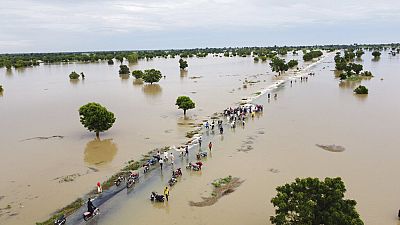

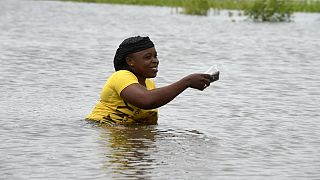
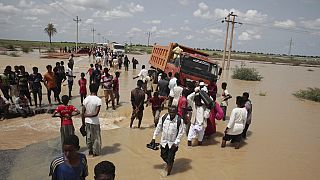
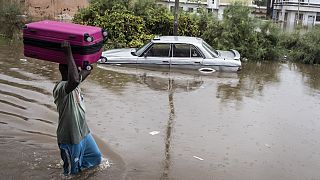
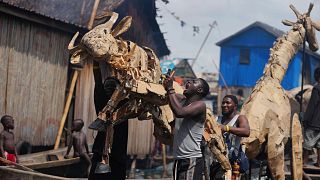





Go to video
84% of world's coral reefs affected by worst coral bleaching event in history
00:47
Ghana: President Mahama suspends Chief Justice Gertrude Torkornoo
Go to video
Police rescue 33 West Africans from a human trafficking scam in Ivory Coast
Go to video
Pope Francis' funeral scheduled Saturday April 26
Go to video
South African orphanage rehabilitates injured predator birds
Go to video
Funeral held in Kenya for TikTok content moderator